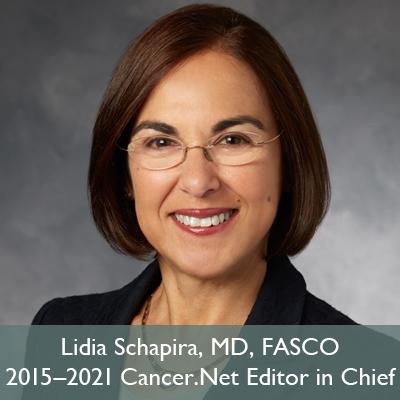
I often ask patients where they find the strength and support to face the hardships caused by cancer. Their responses have given me a greater appreciation for the challenges and experiences faced during and after cancer care and of the toll this takes on caregivers. The stories we hear from people with cancer can help researchers understand the gaps in care and lead health care professionals to offer assistance that extends beyond treatments for cancer and managing symptoms. A colleague of mine said it best: “Listening to patients made me more cognizant of the breadth, and amount, of lifelong support cancer survivors need and how we, as a society, need to put greater efforts into providing adequate support.”
A colleague of mine said it best: “Listening to patients made me more cognizant of the breadth, and amount, of lifelong support cancer survivors need and how we, as a society, need to put greater efforts into providing adequate support.”
People living with cancer often benefit from the practical help and advice they receive from others who have lived through similar situations. Support groups bring people together and provide a safe forum for exchanging perspectives, sharing concerns, and gaining confidence to face the future. Support groups are typically led by a trained health care professional. “Peer support” is a term we use to refer to advice and help received from fellow patients or people without medical training. Peers can be trained to offer guidance without being experts themselves. Peer support can help patients and family caregivers feel supported by a community or navigate the complex process of managing a life-altering illness such as cancer.
Peer support, in person or through web-based platforms, lets a person vent their frustration, learn about new treatments or research protocols, and exchange information. The key to how this works is likely quite simple. Knowing that others have had similar experiences and that they can help may make all the difference in how someone lives through the challenge of cancer. People with peer support can learn how to communicate better with the health care team because of the experience of others. This can lead to better preparation for cancer treatment and empowerment to ask more questions.
How does peer support work? Learning about someone else’s difficult experience may make others feel like they are not alone in their journey. Hearing that you are not alone can inspire you or give you a little more confidence to overcome a difficult symptom or side effect. Peer support may help explain treatment options or provide a deeper understanding of your diagnosis. It may point to new research that may be relevant to your situation.
Feeling supported may also improve health outcomes. A study from 2006 showed that women with breast cancer who had social support had a lower risk of dying from the breast cancer. Social scientists remind me that we’re learning how much impact “connectedness” can have on our health. It’s time for partners in medical care to connect with experts in peer support, so they can work together to find ways to incorporate peer support into overall patient care.
We must remember that peer support is a two-way street. A patient reminded me recently that giving support is beneficial, too. A caregiver once said to me, “Even though I was not the one diagnosed, I felt fortunate to have people to cling to. We have the privilege of giving support to others.”
